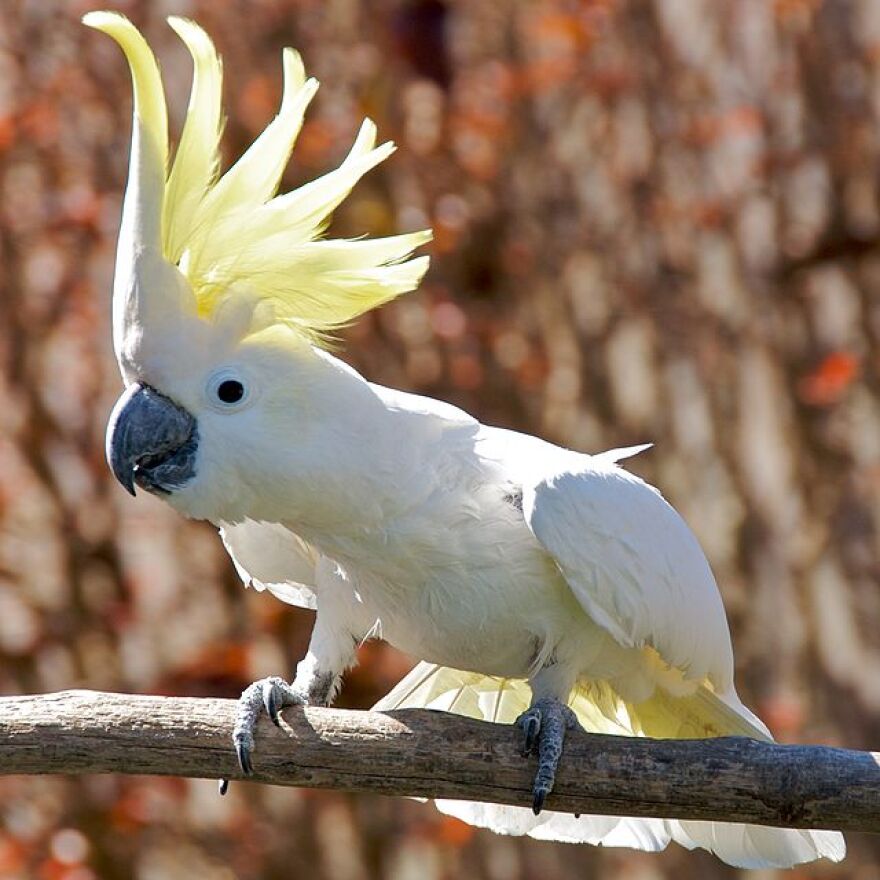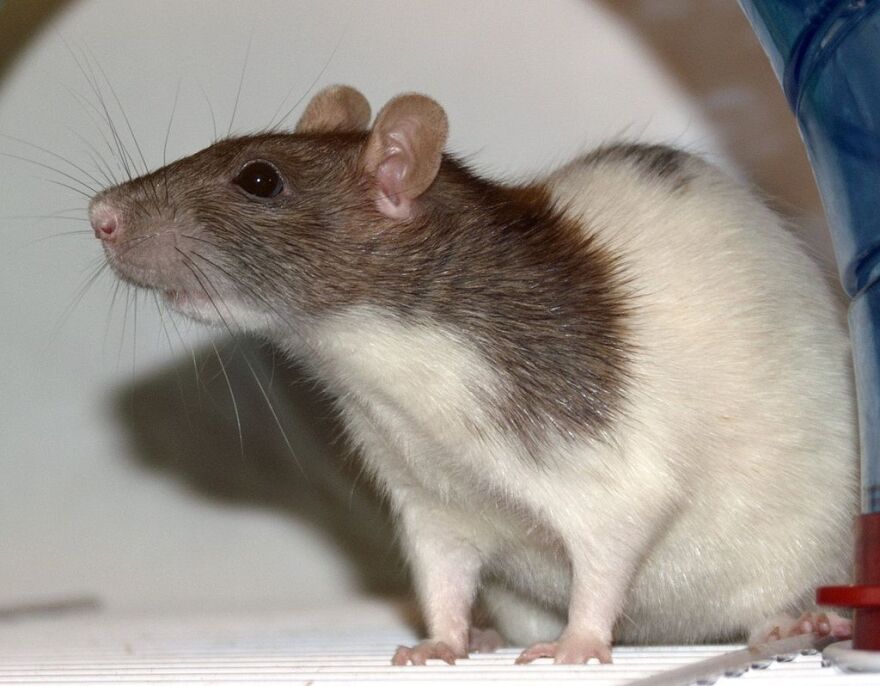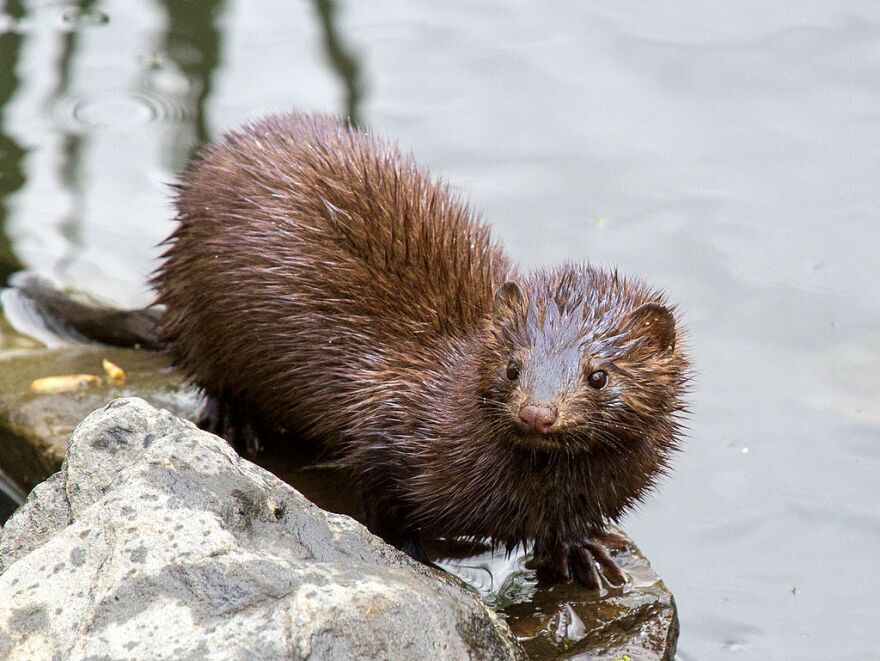Dog and cat getting you down? Longing for something truly unique, unusual or exotic? Kentucky defines "exotic wildlife" as species which have never naturally existed in the wild in the Commonwealth, including introduced species that have become naturalized. Let's take a look at some of the more interesting ones and find out which could be your next best friend or business venture.
In most cases, it's illegal to own or transport an exotic animal unless you have certain permits - usually granted to zoos or academic institutions - but there is a very specific list of permit-exempt animals, which don't require permits for importation, transportation or possession.
Kentucky Law 301 KAR 2:082 Transportation and holding of live exotic wildlife
--
Alpacas (Vicugna pacos)
Cost: Widely varies, from $500 to $35,000
These hairy herbivores have been domesticated on the mountains of northern Peru for thousands of years. In fact, they are so domesticated that there are no known alpacas in the wild. They were, and still are, bred for their fiber - used to make blankets, sweaters, scarves, hats, ponchos, you name it. They typically eat hay and grass and are so tidy, they share a communal dung pile. The Alpaca Owners Association suggests starting with one pregnant female and one young female, which could cost upwards of $35,000! Steep, but hard to resist that face.
Source: alpacainfo.com, alpaca.com
--

American Bison (Bison bison)
Cost: Between $850 to $2,200
The American Bison were king of the Great Plains, once numbering in the 20-30 million, but now around 500,000. Grazing on the native grasses and rooting in the soil with their hooves, they were the original American landscapers, shaping the prairies long ago. Today, they are domesticated for their hides and meat. To get one of these shaggy sedge grazers, you'll likely need to attend an auction and be prepared to shell out at least $1,500 per bovine. It's recommended to start with at least two. It might be easier to simply admire the herd at LBL.
Source: defenders.org/bison, texasbison.org, bisoncentral.com,lonesomebullranch.com
--

Camels (Camelus bactrianus and Camelus dromedarius)
Cost: $2,900 to $13,000
One hump or two? In Kentucky, you can own either. These even-toed ungulates, beloved in the Middle East, are no stranger to the United States - having once served in the US Army Camel Corps. Camels are typically gentle and will eat out of your hand. You can also milk a camel, which is a rare commodity but also illegal to sell in the United States. Well-bred females garner a higher price, but it may be best to start out with a less expensive calf, though you'd have to wait a while before you can ride it to work.
Source: lonesomebullranch.com, lazydogranchtx.com, cbsnews.com
--

Chinchillas (Chinchilla laniger)
Cost: $130 to $150
These crepuscular critters look like an adorable mix of squirrel and rabbit. They are native to the Andes Mountains, but have recently become listed as "critically endangered" in the wild due to over hunting. Ideal for night-owls, chinchillas are nocturnal, but can adapt to daytime activity. Keep a dust bin nearby because they like to bathe in it to keep their fur soft and clean.
Source: chinchillacare.org, iucnredlist.org, petsmart.com
--

Cockatoos (Cacatuidae family)
Cost: $600 to $4,000
There are over twenty species of cockatoo, but the three most common as pets are the umbrella, Moluccan, and sulphur-crested. Cockatoos have a steep price but it's a good investment, because they can live up to 100 years. These birds are incredibly intelligent and need constant mental stimulation, so we would encourage they listen to your favorite NPR station. Yes, many cockatoo parrots mimic human speech and other household sounds - but please keep it PG.
Source: birds.com, birdchannel.com, petsuppliesplus.com
--

Fancy Rats (Rattus norvegicus or Rattus rattus)
Cost: $8 to $20
If you've seen Ratatouille, you've probably thought about it. While they may not actually help you cook, pet rats do enjoy riding on your shoulders and napping in your lap. Domestic rats are often mistreated due to revulsion and fears regarding their wild counterparts. Pet rats rarely bite and stay clean by grooming themselves like a cat. They can also learn tricks like a dog: sit up, fetch, walk on a tightrope and jump through hoops. Now if they could only make a perfectly round pancake.
Source: aspca.org, petrats.org, nfrs.org, petsmart.com
--

Mink (Mustela vison)
Cost: NA
These meat-eating mustelids are native to North America and are classified as an invasive species in many parts. Mink are aggressive and bold and for that reason don't make particularly good pets. Most are domesticated for their lustrous fur. There are some particular rules in Kentucky for owning a mink: adults must be heavier than 1.15 kilograms or the fur must be distinguished from wild mink. Domestic mink tend to be much larger than their wild counterparts and ranchers have bred a range of color patterns whereas wild mink are typically black. Beware, they have anal glands like skunks.
Source: bioone.org, outdoornebraska.ne.gov, furcommission.com, dec.ny.gov
--
?

Yaks (Bos grunniens)
Cost: $900 to $5,000
Let's talk yak facts: these long-haired, grunting grunniens were domesticated by Tibetan ranchers thousands of years ago. They require roughly half the amount of forage as their American cattle cousins, are very winter hardy and good at hauling heavy loads. They are currently a good investment as their ROI is very high due to yak meat, fur, milk and cheese growing in popularity worldwide. Mmm, yak cheese.
Source: yakbreeder.com, theyakranch.com, iyak.org,themeadowsatlakenorman.com
--

Indian Peafowl (Pavo cristatus)
Cost: $35 to $600
Imagine sipping tea on your back porch and a peacock fans out his beautiful feathers at you. Would you be flattered? These pretty pheasants are the national bird of India. Males are peacocks and females are peahens. They are quite loud all year long and can be stand-offish. Peafowl are fairly free-range and like to fly on top of things like the house or barn. It's recommended to buy at least three: one male and two females. If you have room for these big personalities, they'll be a lot of fun... Just hope the neighbors are okay with it.
Source: peacocksaustralia.com, backyardchickens.com, oes.org,purelypoultry.com
--

Ostriches, Emus, Rheas, Kiwis, Cassowaries (Ratite)
Cost: $100 to $1,000
Owning an ostrich is legal in Kentucky in adherence to special definitions. Ostriches are the largest and heaviest bird in the world and have the largest eyes of any land animal, measuring twice the size of their brain. They can run up to 40 miles per hour and one kick could be fatal. Ostriches will eat anything in sight, too, but have a very advanced immune system. A special definition in Kentucky law classifies "Ratite" as members of a family of birds who have no keel and cannot fly. They must be raised for the purpose of producing feathers, meat, hide, animal by-products, and breeding stock. They must be considered farm products for the purpose of financial transactions. They are to be treated as livestock and are not to be hunted. Their eggs make quite the omelet, though.
Source: californiahatchery.com, nal.usda.gov, ncagr.gov, ostrichgrowers.com
--

Toucans (Rhamphastidae)
Cost: $8,000 to $12,000
Their brightly colored bills are unmistakable. Tame toucans are highly adaptable and trainable and will cuddle, sit on your shoulder (Arr) and love to be petted and scratched on. Despite the large bills, their bites are actually fairly weak, so they can't crunch hard. Toucans are expensive and prices very depending on the specific breed, just make sure you get one from a reputable and certified dealer and that they weren't taken from the wild. Toucans eat pellets and fruit and it is not recommended to give them Fruit Loops.
Source: nashvillezoo.org, softbillsforsale.com, emeraldforestbirds.com





